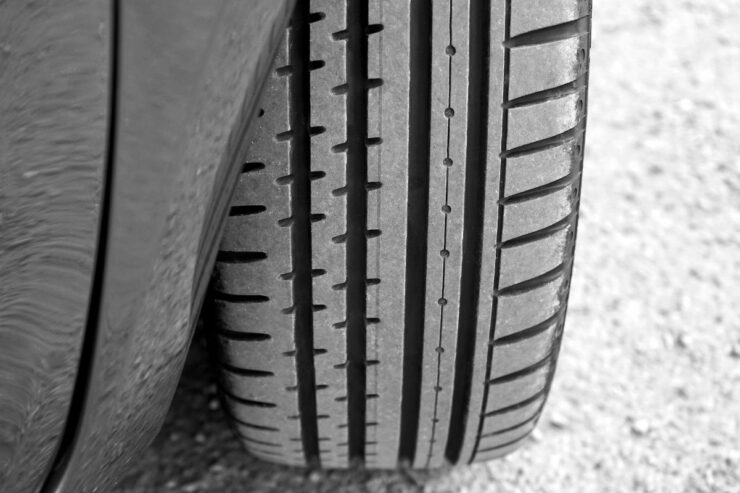Winter tires and all-season tires have different variations primarily in functionality. Winter tires provide the best grip on roads filled with snow and ice, while all-season tires provide better handling when weather conditions are not extreme. Having the right tires during various weather conditions is essential for safety and ensuring you are comfortable when driving. Therefore, it is best to switch these tires depending on the season you will be experiencing. However, when making your tire changes and selection you need to put these factors to consideration
- The properties of your car
- Where you will be driving your car
- How often you will be driving
Let’s go through some of the pros and cons of winter and all-season tires.
What are Winter Tires?
Winter tires, also known as snow tires, are specifically designed to offer the best traction. They are quintessential for the winter season due to their scaled-down grooves, which bite into snow and ice, thus displacing water faster to provide more traction. They also reduce hydroplaning using the deep threads which dig into snow and help with better grip and dispersing of water. Additionally, they have a softer compound that enables them to grip roads easily during winters.
Benefits of Winter Tires
Best Grip on Ice and Snow
The primary advantage of purchasing the best tires for winter is that they are specifically designed for the low-temperature season. They will give you the best grip during harsh weather conditions, unlike all-season tires, which become stiff during the cold season, making it hard for you to drive on roads filled with snow.
They Last Longer If They Are Maintained Properly
If you switch up your tires according to the seasonal changes, you will likely use your snow tires for four to five seasons. They are cost-effective since you will not keep replacing them if they are stored and maintained properly. When not in use, ensure you store them in an air-tight bag in a cool and dry place.
They Can Help You Lower Your Insurance Premiums
Using the best tires for winter reduces the risk of getting into an accident, thus lowering your insurance premiums. They can brake well due to their advanced grip on the road. Therefore, to save up on some bucks, it is essential to use winter tires during the snow season. 
Disadvantages of Winter Tires
Poor Handling
Snow tires may be better at providing the best grip and braking, but they do not offer the best handling compared to all-season tires. As much as they provide safety, you have to drive carefully on icy roads since you may not have much control and handling as you are used to when driving on a normal road.
Soft Rubber
Snow tires are designed using soft rubbers. Hence they easily wear out when driven on normal roads. Therefore, you will have to switch back to the all-season tires. Switching back will mean that you will also incur changing fees. You will incur approximately $75 twice a year when changing your tires. The cost may seem expensive; however, having two sets of tires is cost-effective for longevity purposes.
What Are All-Season Tires
All-season tires are made up of treads and rubber compounds that make it possible to use them during the hot and cold seasons. They have been designed to weather light snow meaning drivers can use them all year round during different seasons.
Benefits of All-Season Tires
They Are Cost-Effective On a Short-Term Basis
In states that do not require winter tires, you can use your all-season tires throughout the various seasons without incurring changing fees. Apart from the rotation tire fees needed once after every 10,000km, you will not be incurring any more costs since the tires can last for approximately three years.
They Are Suitable For the Medium Climate and Are Easy To Drive
If you live in an area with no significant difference between winter and summer, it is best to opt for the best all-season tires. If it only rains during the cold months, all-season tires are the best option since they provide almost the same protection from aquaplaning, as they are made to work through wet and hot weather conditions. They are easy to drive and provide better handling compared to winter tires when the weather conditions are not extreme.
Disadvantages of All season tires
They Wear Out Easily
All-season tires are frequently used, which compromises their longevity. During extreme heat or frost, the tires have to be changed frequently between six to seven months. In regions with pronounced seasons, tires are not the best options since they might lose their properties if the winter is very frosty, and if the summer is too hot, the rubber melts. Additionally, they are not made for off-road use and aggressive driving. They wear out easily depending on the number of trips you make to the countryside.
Their Agility Is Compromised In Extreme Weather Conditions
You will find it hard to control your car on icy roads. Thus it will mean that you will not have the best fit of tires for an extremely icy winter season. Additionally, your safety is not guaranteed, making you more vulnerable to accidents during winter.
Conclusion
All-season tires are suitable for driving on highways in states with stable weather conditions, while winter tires are a win for driving during an extremely icy winter season. In states with varying latitudes, ensure you invest in the best tires for every season to guarantee your safety and comfort when driving.










